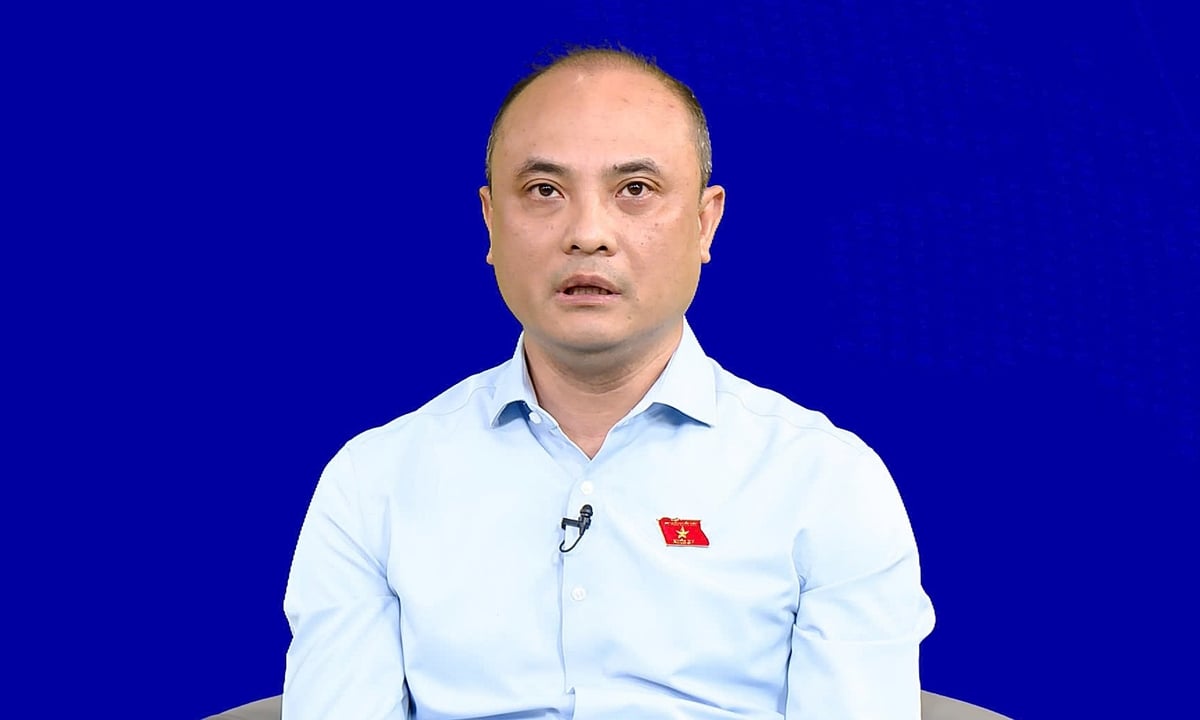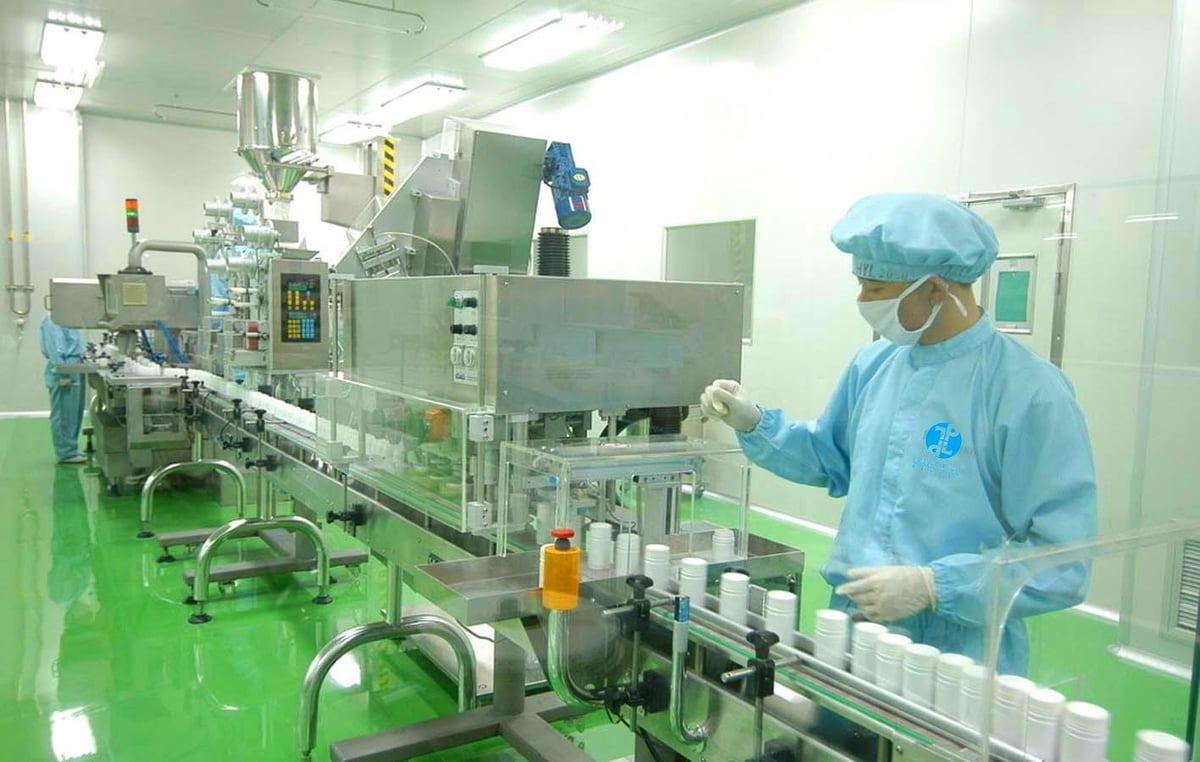December 7, 2025 | 12:06 GMT +7
December 7, 2025 | 12:06 GMT +7
Hotline: 0913.378.918
December 7, 2025 | 12:06 GMT +7
Hotline: 0913.378.918
The carbon tax is a fee imposed by a country or an economic bloc such as the EU on goods with high greenhouse gas emissions during production. The aim is to compel businesses to reduce emissions, use clean energy, and ensure transparency in their supply chains. Starting in 2026, the EU will directly apply the tax to imported products, beginning with sectors such as steel, cement, fertilizers, aluminum, and electricity.

Mr. Nguyen Phuong Tuan, Vice Chairman of the National Assembly's Committee on Science, Technology and Environment. Photo: VITR.
At the seminar titled “Promoting efficient and economical use of energy,” jointly organized by the Industry and Trade Magazine on June 5, Mr. Dang Hai Dung, Deputy Director General of the Department of Innovation, Green Transition and Industrial Promotion (Ministry of Industry and Trade), stated that one of the major upcoming shifts will be the transition from technical barriers to tariff barriers based on emissions.
“In less than a year, EU will implement a carbon tax, calculating emissions directly on each imported product,” he said.
According to Mr. Dung, around 80% of a product's emissions come from energy consumption throughout the entire production chain, from extraction to processing. This reality forces Vietnamese enterprises to restructure their production lines toward greater efficiency and energy savings, or risk losing their competitive advantage.
The pressure is becoming increasingly evident in key export sectors such as textiles and garments, footwear, steel, cement, and seafood. International partners now demand not only quality but also traceability of energy sources. “The water used for irrigation and the electricity used for drying must meet green standards,” emphasized Mr. Nguyen Phuong Tuan, Vice Chairman of the National Assembly's Committee on Science, Technology and Environment.
Mr. Tuan stressed that “greening” must start with awareness and concrete actions — from engines and lighting systems to kilns. This is no longer an option, but a matter of survival.
However, with over 90% of Vietnamese businesses being small and medium-sized enterprises, the biggest barriers remain capital, technology, and human resources. To support them, the draft amendment to the Law on Economical and Efficient Use of Energy has introduced several new policy tools.

Production lines must increase the use of cleaner, lower-emission energy sources. Photo: Illustration.
One of the proposed measures is the Energy Saving Fund model and a socialized mechanism to provide financial support, credit guarantees, and interest rate reductions. At the same time, the Energy Service Company (ESCO) model, which allows businesses to “rent” energy-saving solutions instead of making full upfront investments, is also being promoted.
“This is a way for small businesses to access technology without large initial capital,” Mr. Dung noted.
In addition, regulations on energy labeling, electricity loss control, and solar power grid connection are being reviewed to better align with practical conditions. Mr. Vo Quang Lam, Deputy General Director of EVN, said that the Group is working with the Ministry of Industry and Trade to simplify procedures for connecting renewable energy to the grid, while also assisting businesses in conducting energy audits and advising on load transition strategies.
According to Mr. Lam, the emission challenge is also an opportunity for Vietnam to restructure its energy market and build a comprehensive green ecosystem from production to consumption.
“If approved, the new law will not only help ensure energy security but also enable Vietnam to maintain its position on the global trade map, where green standards are increasingly becoming the default,” he said.
Translated by Phuong Linh

(VAN) As of 2025, the ASEAN region has a total of 69 ASEAN Heritage Parks recognized across its 10 member states. Among them, Viet Nam contributes 15 ASEAN Heritage Parks.

(VAN) Yok Don National Park has high biodiversity with numerous endemic plant and animal species, and it is also the only dipterocarp forest ecosystem conservation area in Viet Nam.

(VAN) Viet Nam and Brunei signed two important MOUs on fisheries and IUU, expanding cooperation in agriculture, the environment, and Halal exports, aiming to substantively implement joint projects.

(VAN) The Viet Nam Coconut Association worked with the International Finance Corporation (IFC) and businesses to promote the supply chain, enhance competitiveness, and develop the coconut industry sustainably.
![Hue aims for Net Zero: [2] Pioneering low-emission tourism](https://t.ex-cdn.com/nongnghiepmoitruong.vn/608w/files/huytd/2025/12/04/0633-dulichzero-4-095634_236-161125.jpg)
(VAN) The ancient capital of Hue has developed Net Zero tourism products and models, aiming to reduce carbon emissions and pioneer the establishment of Viet Nam's green tourism destination.

(VAN) C.P. Viet Nam has announced the successful completion of its goal to plant 1.5 million trees during the 2021-2025 period, a key milestone within company's long-term ESG strategy and its roadmap for emission reduction.

(VAN) This is an initiative of MAE aimed at creating a unified coordination mechanism to implement agricultural cooperation programs with developing countries.